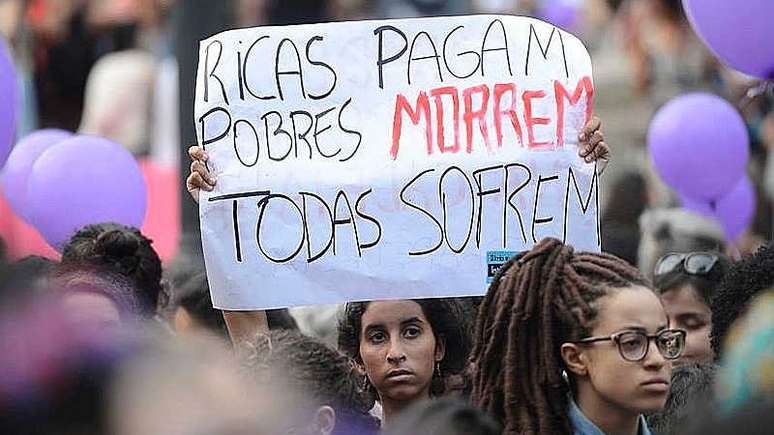According to the National Abortion Survey, black women are 46% more likely to have an abortion and are the most exposed to unsafe procedures Text: Paula Nunes* | Photo: Fernando Frazão/Agência Brasil
The Federal Supreme Court (STF) has begun ruling on the decriminalization of abortion up to the 12th week of gestation in Brazil. ADPF 442, proposed by the PSOL in 2017, is on the agenda and had the favorable vote of the rapporteur, Minister Rosa Weber. There is a lot of expectation from the feminist movement on the topic, but the question I always get asked is: is the decriminalization of abortion in Brazil a problem for black women? And the answer is that yes, the legalization of abortion is a very important issue for black Brazilian women.
In Brazil the practice of abortion is prohibited and there are cases in which the penalty is not applied: proven risk to the health of the mother or fetus, pregnancy resulting from rape and fetal anencephaly. This does not mean, however, that the practice of abortion does not occur in cases not provided for by law. You may not know it, but you probably know someone who has had an unsafe abortion. According to the National Abortion Survey, one in seven women aged 40 and under have undergone the procedure. And it is black women who are most likely to have an abortion, at all ages.
A black woman has a 46% chance of having an abortion, meaning that for every 10 white women who undergo the procedure, there will be 15 black women in the same situation. We therefore affirm that legalizing abortion is a matter of public health, gender equality and race. Poor, black women are the biggest victims of this system, which forces them into unsafe abortions. As a result, they face the highest mortality rates. Every 2 days, a woman dies from this cause.
The criminalization of abortion does not prevent its existence. What happens is that there are clinical markets with high costs to perform procedures all over the country. Women who cannot pay, generally black and poorer, desperate for termination of pregnancy and with little education, resort to unsafe methods that put their lives at risk. Neither arrested nor killed The decriminalization of abortion up to 12 weeks will not mean increasing the number of abortions in the country. It simply means that we will not criminalize women who have undergone the procedure. We don’t want prey or deaths.
In fact, legal, safe and free abortion is a recommendation of the World Health Organization (WHO). Studies show that in countries where abortion is legal there is a reduction not only in female mortality but also in the number of abortions. After all, legalizing also means addressing the issue so that all pregnant people have access to information, contraceptive methods and reproductive rights. In recent years, Latin America has been invaded by a green wave and in countries such as Argentina, Mexico, Colombia and Uruguay abortion has been decriminalized.
Let’s hope the same happens in Brazil. It will be a step in finding public policies that ensure access to health and reproductive rights for women and women who give birth, especially Black women.
* Paula Nunes is a criminal lawyer and human rights defender. In 2022 she was elected deputy of the state of São Paulo under the collective mandate Bancada Feminista do PSOL, a movement for the employment of women in politics, especially black women.
Source: Terra
Rose James is a Gossipify movie and series reviewer known for her in-depth analysis and unique perspective on the latest releases. With a background in film studies, she provides engaging and informative reviews, and keeps readers up to date with industry trends and emerging talents.





